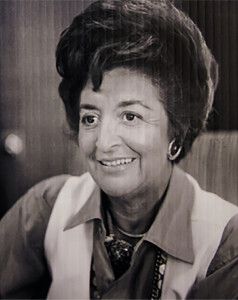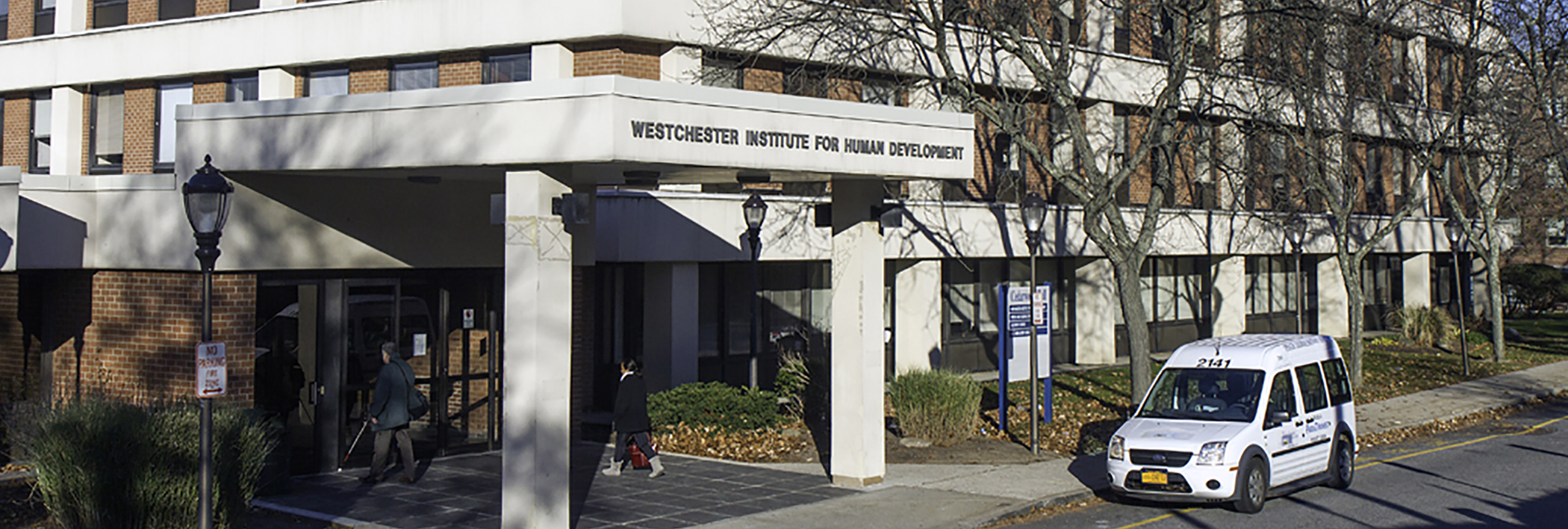About WIHD
As one of 68 University Centers of Excellence in Developmental Disabilities, the Westchester Institute for Human Development (WIHD) is dedicated to improving the lives of people with disabilities and vulnerable children through professional education, direct service provision, and innovative research. First established in 1950, WIHD moved to Westchester County in 1972 and has been a key regional resource providing a wide range of medical, dental, clinical and social services to individuals with disabilities, vulnerable children, families and professionals. At WIHD, everything we do is guided by our vision of a future in which all people, including people with disabilities and vulnerable children, live healthy and productive lives as full members of society.
UNIVERSITY CENTER FOR EXCELLENCE IN DEVELOPMENTAL DISABILITIES (UCEDD)
WIHD is a leader in the areas of disability and human development. The Institute addresses the needs of the community through professional education programs, technical assistance, research, and dissemination of information. For more information CLICK HERE
MISSION
WIHD creates better futures for people with disabilities, for vulnerable children, and for their families and caregivers. WIHD accomplishes its mission through professional education, comprehensive services and supports, community training and technical assistance, and innovative research and information dissemination.
VISION
We envision a future in which people with disabilities and vulnerable children live healthy and productive lives as full members of society.
VALUES
INCLUSION & SELF-DETERMINATION
Individuals with disabilities or special health care needs have the right to live meaningful and productive lives as full and contributing members of the community. WIHD’s work is grounded in the belief that access, choice and support are essential for individuals to make informed decisions about their own lives.
HEALTH, SAFETY & WELL-BEING
WIHD values, respects and promotes the safety, health and well-being of persons with disabilities, vulnerable children, their caregivers and the staff who support them so that all individuals can reach their fullest potential.
FAMILY & COMMUNITY PARTNERS
WIHD is most impactful when its employees, caregivers, advocates and the community each collaborate as equal partners and communicate with transparency.
DIVERSITY, EQUITY & INCLUSION
WIHD is committed to cultivating an environment that values individual attributes, characteristics, and perspectives. We aim to increase awareness and promote diversity, equity and inclusion through education and continuous self-reflection and implementation of quality services, training and research to better meet the diverse needs of the individuals we serve.
LEADERSHIP, INNOVATION & ADVOCACY
WIHD embraces the importance of diverse, interdisciplinary, multilevel leadership in generating and advocating for creative and innovative solutions and cultivating leaders of the future.
EDUCATION, TRAINING & RESEARCH
WIHD is dedicated to providing evidence-based education and training to professionals, families, self-advocates, and community members as well as to conducting and disseminating research that expands knowledge and improves outcomes for individuals with disabilities.
STRATEGIC INTENTIONS
WIHD engaged in a strategic planning process to reflect on the changes, both positive and negative, necessitated by the COVID-19 pandemic and to plan for an ever-evolving work environment that is flexible, inclusive, and sustainable. This process resulted in the Strategic Plan: 2022 – 2025 – A Roadmap to Recovery and Resilience.
WIHD History
 For 40 years WIHD has been in Valhalla creating better futures for people with disabilities, for vulnerable children, and for their families and caregivers. Over the years the emphasis of the Institute has expanded and changed, however, the mission has not. WIHD continues to provide quality health care and related services to people with disabilities, support and training for vulnerable children and their families, graduate and postgraduate training, technical assistance, community support and research.
For 40 years WIHD has been in Valhalla creating better futures for people with disabilities, for vulnerable children, and for their families and caregivers. Over the years the emphasis of the Institute has expanded and changed, however, the mission has not. WIHD continues to provide quality health care and related services to people with disabilities, support and training for vulnerable children and their families, graduate and postgraduate training, technical assistance, community support and research.
The legacy of the Institute predates its 40 years in Valhalla. Formerly known as the Mental Retardation Institute, WIHD was founded in 1950 by Dr. Margaret Giannini at New York Medical College (Flower-Fifth Avenue Hospital) in New York City. With start-up funding from the newly formed National Association for Retarded Children, the Institute initially served as a diagnostic and evaluation clinic for children, who at the time were considered to be affected with “mental retardation”. It was one of the first outpatient services in the country concerned exclusively with this diagnosis.
In 1957, the New York State Department of Mental Hygiene funded a multidisciplinary postgraduate training program, which led to considerable expansion of WIHD’s staff, faculty and services. In 1963 Congress passed national legislation to support the creation of University Affiliated Programs to focus on what was labeled at the time as ‘mental retardation’. WIHD was named one of the first 18 programs. The Institute was also successful in securing a federal grant for the construction of a new teaching facility to provide interdisciplinary training, exemplary services, technical assistance and research. In the late 1960s, New York Medical College affiliated with Westchester County Medical Center in Valhalla, NY.
By 1972, WIHD had moved its Programs into the new building, constructed with the federal grant, on the Valhalla campus. This was the foundation of today’s WIHD Programs. In the early 1980’s WIHD’s programs were transferred from the College to the Westchester Medical Center and the WIHD school was transferred to a community agency, School for Special Children.
In 1987, WIHD formed a partnership with the Westchester County Department of Special Services to create a Child Welfare Program based at the Institute. In the same year WIHD’s inpatient unit was closed. In the early 1990’s WIHD launched a special training initiative on Positive Behavioral Supports and in November of 1994, the Institute formally changed its’ name from the Mental Retardation Institute to Westchester Institute for Human Development (WIHD).
In 2005, the New York Medical College established the Center on Disability and Health in the School of Health Sciences and Practice, and named WIHD’s President and CEO, Ansley Bacon, PhD as Director. In July of that year WIHD separated from the Westchester Medical Center becoming an independent non-profit organization. Three years later in 2008, WIHD’s Children’s Advocacy Center received full accreditation by the National Children’s Alliance. In 2010, WIHD received national recognition by the Association of University Centers on Disabilities (AUCD) for its work promoting family and self-advocate partnerships in all its activities.
Today, WIHD continues to address important health and social issues in order to further its vision of a society in which people with disabilities, vulnerable children, the families and caregivers live healthy and productive lives as full members of society.

WIHD is proud to be a Better Business Bureau (BBB) Accredited Charity Seal Holder.
Our Charity Report on the BBB Website is located at: http://search.newyork.bbb.org/reports.aspx?cid=C1454
Westchester Institute for Human Development is also listed on the seal list directly here: https://www.bbb.org/local/0121/charities-donors

